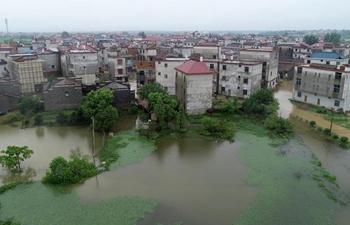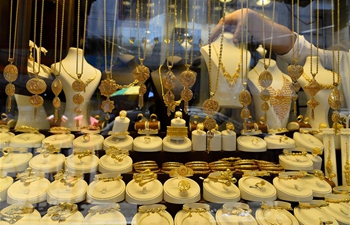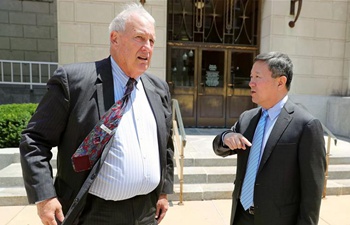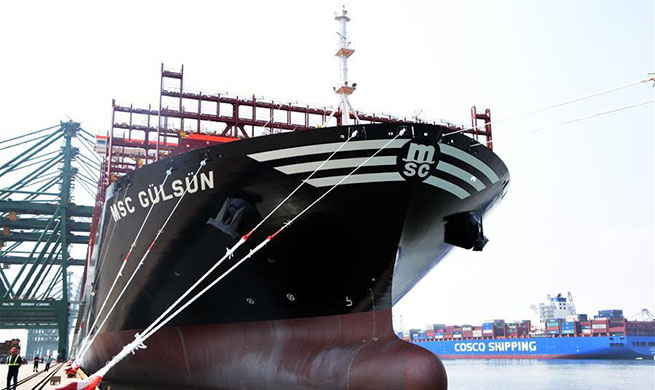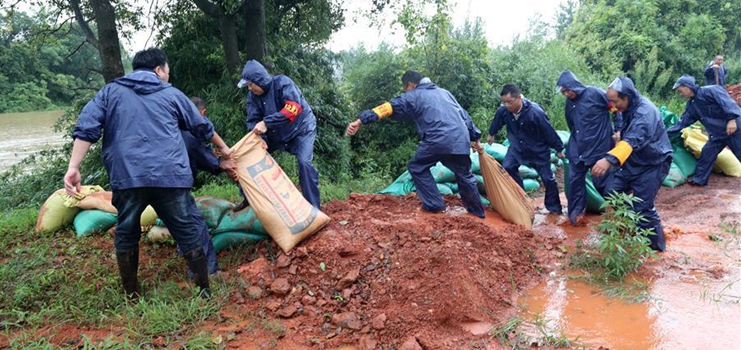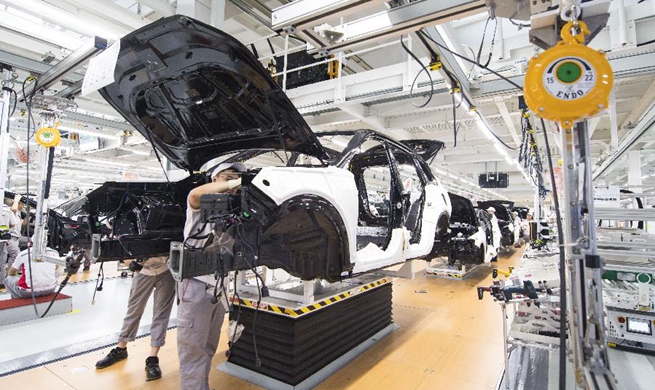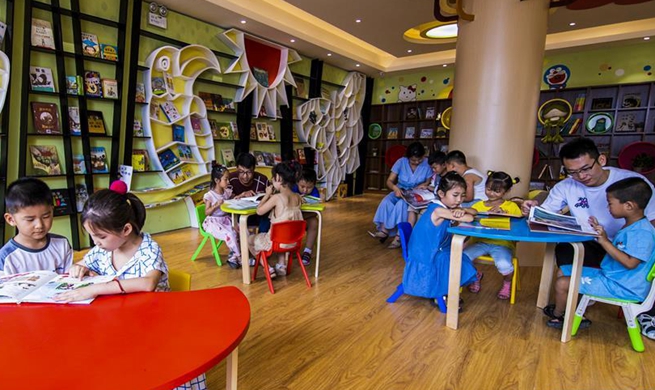KIEV, July 9 (Xinhua) -- The 21st Ukraine-European Union (EU) Summit held in Kiev on Monday brought together Ukrainian President Volodymyr Zelensky, President of the European Council Donald Tusk and European Commission President Jean-Claude Juncker to discuss the political and economic ties between the EU and Ukraine.
During the summit, EU and Ukrainian leaders exchanged views on future priorities for EU-Ukraine relations which have actively developed during the last five years.
The date of the summit held this year in Kiev was announced by Zelensky on June 5 after the meeting with Tusk in Brussels as part of his first foreign trip as the Ukrainian president.
MOVE TOWARDS EU
Volodymyr Zelensky won a landslide victory in April this year against Ukrainian President Petro Poroshenko, who turned Ukraine towards the EU by signing Ukraine-EU Association Agreement back in 2014 following the Euromaidan events.
The political provisions of the Ukraine-EU Association Agreement were signed on March 21, 2014, after a series of protest sparked by former Ukrainian President Viktor Yanukovych's last-minute refusal to sign the agreement in 2013.
The EU and the newly elected Poroshenko signed the economic part of Ukraine-EU Association Agreement on June 27, 2014, and described it as Ukraine's "first but most decisive step" towards its EU membership.
On January 1, 2016, Ukraine joined the Deep and Comprehensive Free Trade Areas (DCFTA) with the EU as a part of the country's EU Association Agreement. It allowed Ukraine access to the European Single Market in selected sectors. It was provisionally applied since January 1, 2016, and formally entered into force on September 1, 2017.
Looking back at the results of building stronger economic ties with Europe, Poroshenko underlined in early 2019 that trade between Ukraine and the EU grew by 40 percent during the past three years after signing the DCFTA and amounted in 44.4 billion euro (49.7 billion U.S. dollars) in 2018.
DCFTA is aimed to offer Ukraine the "four freedoms" of the EU Single Market: free movement of goods, services, capital, and people.
Under the agreement, Ukrainians were granted visa-free travel to the Schengen Area for up to 90 days during any 180-day period in June 2017, and this part of the Association Agreement formally came into effect in September that year.
The visa-free regime between Ukraine and the EU was used by almost 3 million Ukrainians over the past two years, according to the Ministry of Internal Affairs of Ukraine.
The EU is also one of the main donors to Ukraine. The total Macro-Financial Assistance extended to Ukraine by the EU since 2014 reached 3.3 billion Euro (3.7 billion U.S. dollar) in June 2019, which is the largest amount of such assistance given to any non-EU country.
NOT READY TO JOIN
On February 7, 2019, the Ukrainian parliament voted to adopt constitutional amendments proposed by President Poroshenko and included the goal of entering the EU into the Ukrainian constitution.
While experts do believe that Ukraine is slowly moving towards the bloc, the country will not join any time soon.
Ukrainian Minister of Foreign Affairs Pavlo Klimkin told the press in January that Ukraine is not yet ready to join the European Union.
"Joining the EU is a project with a medium-term prospect. If someone tells you that we will join (the EU) in a year or two, never believe them. This is pure lie misleading people," said Klimkin.
During his visit to Brussels, Zelensky reassured his EU partners that Ukraine will fulfill its obligations under the Association Agreement with the EU. He pointed out that European integration is primarily about the implementation of systematic internal changes and reforms.
Systematic reforms much co-financed by the EU have been a weak spot for Ukraine and their absence was heavily criticized by foreign partners as well as by local politicians which led to Poroshenko losing the post of the president of Ukraine.
Ukraine still needs to tackle corruption, decentralize, support civil society and achieve peace in Eastern Ukraine, where an ongoing conflict since April 2014 remains active.
Volodymyr Zelensky, who is new to politics, has yet to illustrate to the Ukrainian people as well as EU officials his method of confronting the challenges hindering closer cooperation with the EU.


